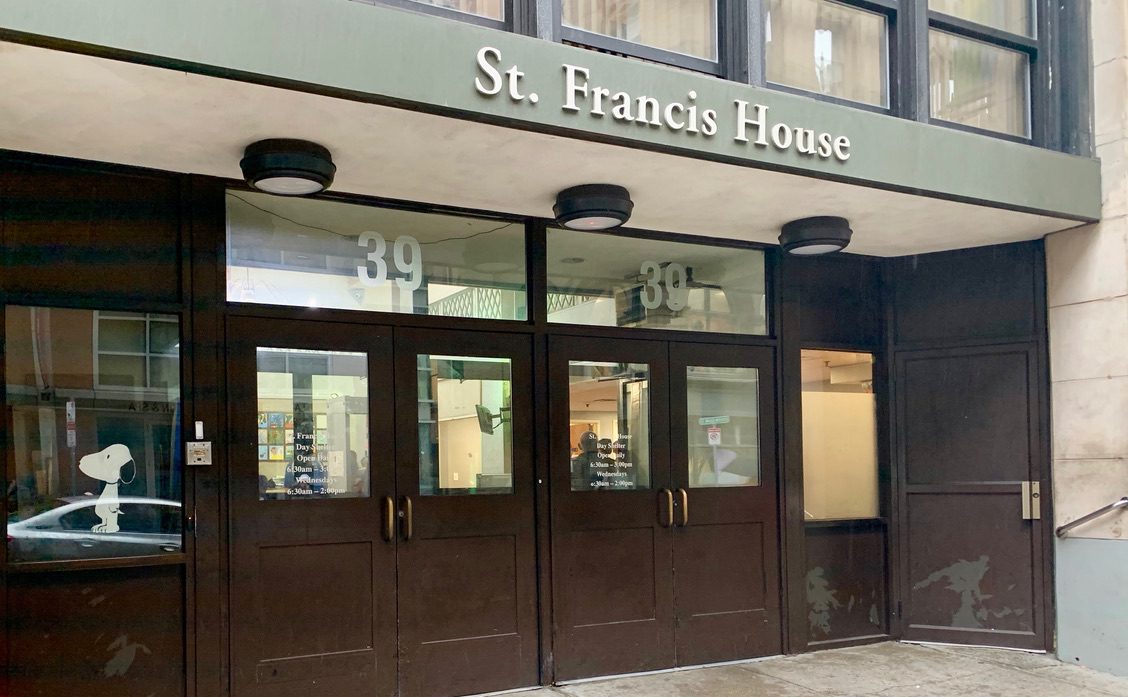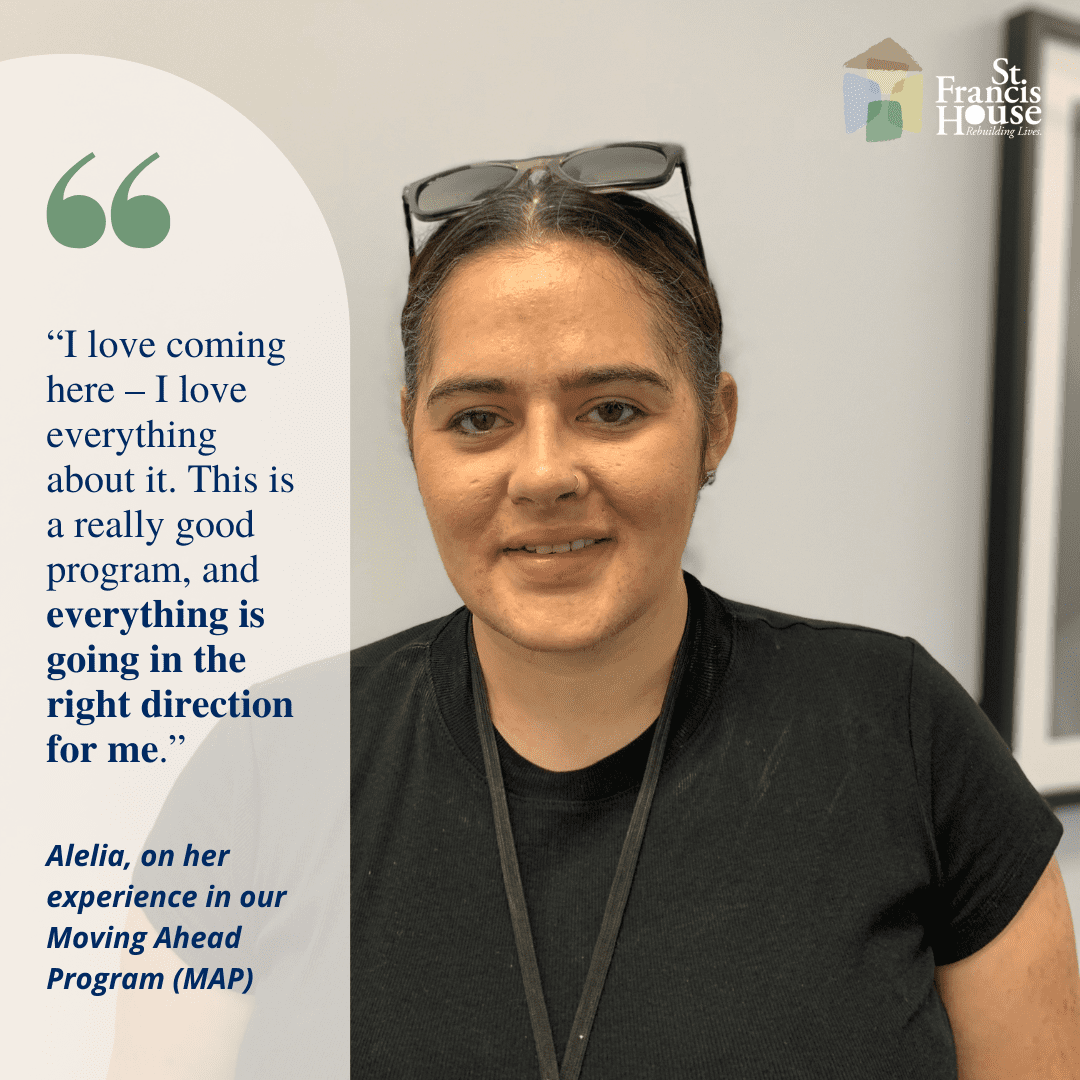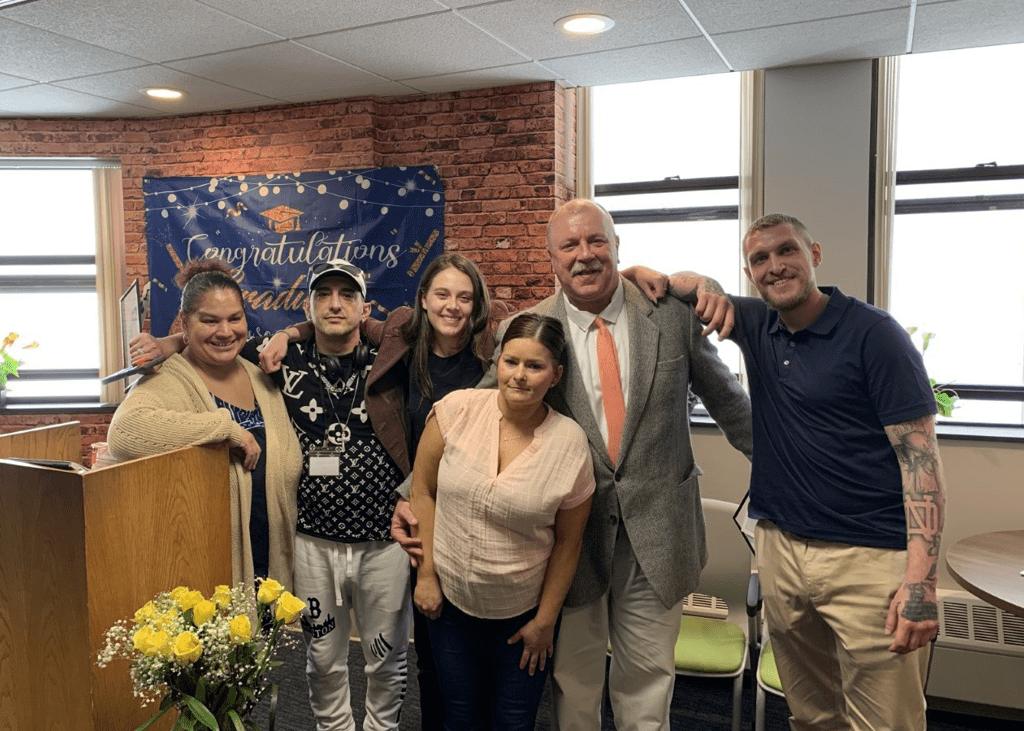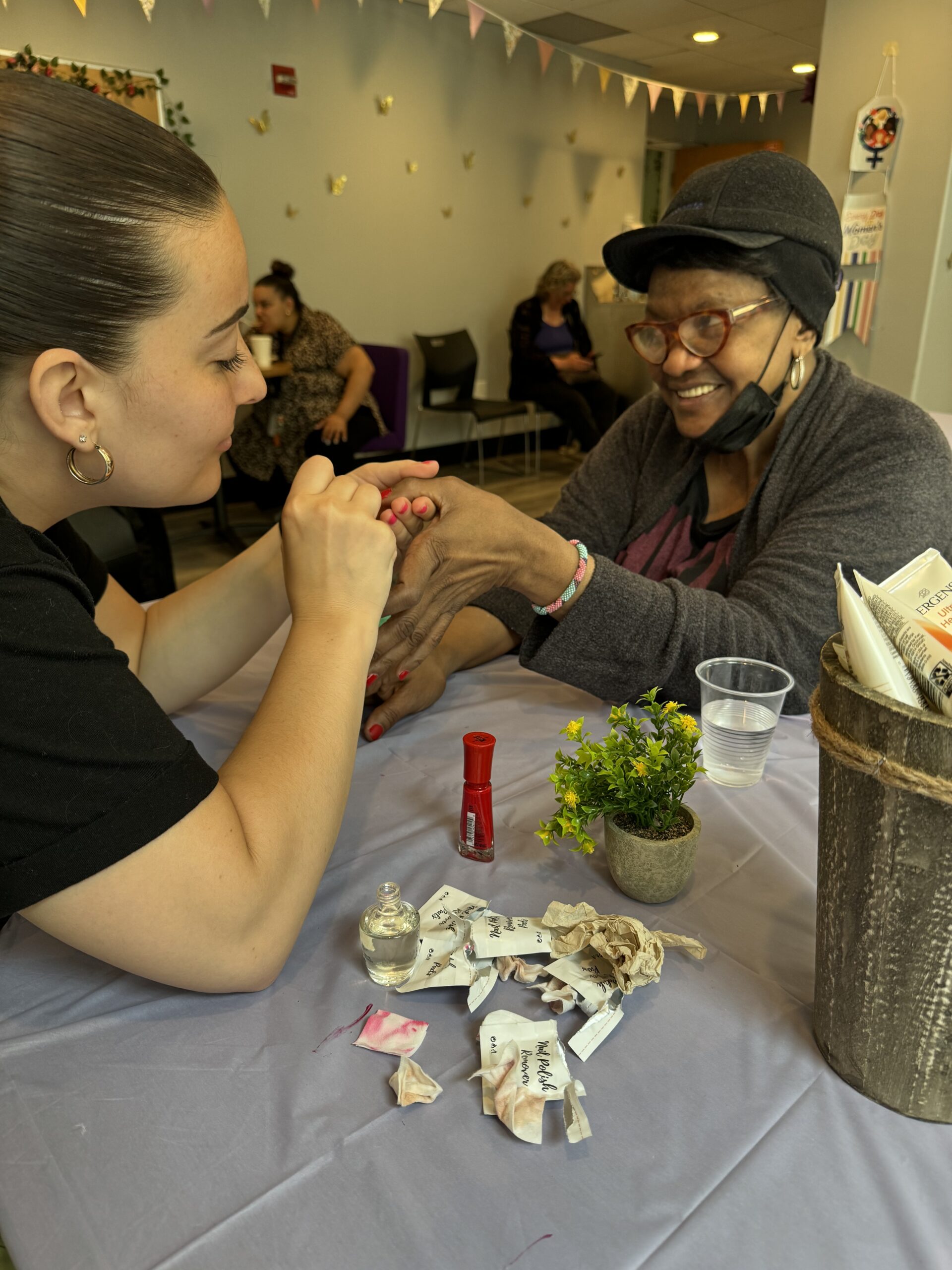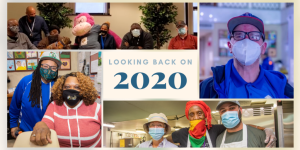
As one year ends and another begins, it’s inevitable that we look back at the past year and think about all that happened during it. While the details change, here at St. Francis House there’s usually a rhythm that stays fairly consistent from year to year.
New things do happen, new people enter our life: guests, staff, supporters, and board members, and we introduce new programs; last year it was the opening of the Recovery Center. We run new events, and new and challenging situations emerge that we need to respond to. You may remember a few years back when we became an emergency overnight resource when the City of Boston was forced to close the Long Island Shelter.
But as we ring out 2020 and ring in 2021, it’s safe to say that 2020 was something else entirely.
Yes, it started out with business as usual. We celebrated Christmas when Cardinal O’Malley joined our guests for a day full of comfort and joy. In late January, we joined Mayor Marty Walsh by hitting the cold and dark streets of Boston to conduct the census of those experiencing homelessness. And as we entered the month of February, we were thankful that the winter had been relatively kind to our guests, with little by way of snow. In early March, we introduced the folks who, come April, would be running the Boston Marathon on behalf of St. Francis House.
And then…
Mid-March, we began to hear more and more about the coronavirus, including that the homeless community, individuals with underlying medical conditions, and those living in congregate spaces were at major risk of this deadly virus. Along with the City of Boston and the local network of homeless providers, St. Francis House began to respond in numerous ways, large and small, always mindful of both our commitment to the vulnerable community that we serve and the safety of our staff.
We quickly began initiating changes that we’ve been adding to since. Staff members who were able to begin working remotely did so. We equipped those working on-site with PPE and organized our congregate spaces for a smoother and safer traffic flow. An outside cleaning service added another layer of daily deep cleaning around the building, with a special focus on high-touch areas, in addition to increased sanitization by facilities.
By April, our volunteers went on furlough, our Moving Ahead Program (MAP) and new Dog Day Care Academy classes were temporarily put on hold, and we had reconfigured our basic services in order to continue meeting the need as safely as possible. Cold, bagged meals were served, and our clothing program had been reworked completely. While no longer able to accept clothing donations, nor able to offer daily appointments at our clothing center, we consistently provided emergency clothing and essentials like warm winter clothing to guests in need. In addition, the Resource Center has continued to operate throughout, giving guests the opportunity to shower, pick up hygiene items, use computers and phones, or get off their feet and watch a bit of TV – all socially distanced in reconfigured space, of course.
Our Recovery Support Center is the only such facility in the state that serves the homeless population. When other recovery centers were forced to shut down, we received a unique state exemption and were allowed to remain open for our guests in recovery.
We made hand sanitizer even more readily available than it had already been. Facilities installed a hand-washing station in our lobby and HEPA filters in our classrooms and offices. When we re-introduced hot meals, guests continue to have the choice to eat in the dining room, reconfigured for social distancing, take their meals to other areas in the building, or take them completely to go in portable containers.
When the state-wide mask requirement was put in place in early May, we were ready, thanks in no small part to our supporters who took out their sewing machines and stitched up some beautiful cloth masks for our guests. We also began distributing disposable masks that our guests pick up at the door when they come in.
Guest Nytshall is thankful for our efforts. She told us, “I am grateful and happy that SFH was able to make sure they had PPE supplies to give out. It helped to keep more people from being sick. It protected the homeless and staff from getting sick and giving COVID to their families and other people, it made us feel safe, and it made us feel important.”
Throughout the pandemic, we have continued to provide medical appointments with Boston Healthcare for the Homeless Program, mental health counseling, workforce development services, and housing assistance. Some of our work in these areas has been done remotely, but where safely possible we’re helping our guests in person.
Resilience ‘R Us
What COVID has shown is just how resilient our staff members are. Our work has long been augmented by the thousands of hours our volunteers put in. Volunteers at SFH are drawn primarily from local businesses, colleges and universities, and the ranks of retirees. While a few volunteers have now returned, businesses have begun a new era of “working-from-home,” schools are online, and many of our retiree volunteers are members of a cohort more vulnerable to COVID. All along, our staff members have jumped in to fill the slots once held by our volunteers. COVID has meant that staff members had to take on new and often additional responsibilities to keep SFH going.
Our guests have shown their resilience, as well, quickly adjusting to the changes in how we deliver our services and to changes in what we expect from them. For a population that, even without COVID, experiences a stressful existence, the ability to go with the new flow has been remarkable. Among the most remarkable: in June, having resumed both MAP and Dog Care Academy on a hybrid basis that combined in-person and virtual learning, we held two graduation ceremonies.
While some of our work went virtual, all of our events did. In August, the Shooze Cruise set sail without anyone setting foot on a boat, and raising over $30,000 and bringing in 200 pairs of brand-new shoes. All the Way Home, our annual fall gala, went off, as usual, without a hitch. Only this time it was online. While we missed the camaraderie (and good food) of our traditional dinner, we still raised $615,000 thanks to our community of support.
We still served hundreds of guests on Thanksgiving Day, and again on Christmas. And we still provided for Christmas gifts: backpacks stuffed with goodies for all of our guests; wish-list presents for our Next Step housing residents who live upstairs at 39 Boylston and for MAP class students; and gift cards for the residents of our affordable housing units at The Union.
We couldn’t have done any of this without the ongoing generosity of our supporters, the many individuals, businesses, and organizations who stepped up to make sure that we could keep our regular services going while also paying for the additional pandemic-related costs we’ve been incurring.
We enter the new year hopeful.
Hopeful that we’ve turned the corner, and our staff and guests will soon receive the vaccine. Hopeful that we’ll return to a new normal. Hopeful that we’ll be able to welcome all of our volunteers back.
Hopeful that, when we look back on 2021, we’ll find that we’ve come out of this stronger than ever before and that we’ll never lose the St. Francis Spirit – so aptly reflected in the words of guest Dwayne D.
“If SFH wasn’t here and open, people would have nowhere to go. It feels good to come to a place where you know people care about you. They’re not here to just collect a paycheck. The staff has been so patient with everyone given the circumstances. I am so appreciative.” Words echoed by another guest Russell L., “St. Francis House cares. It shows when you come into the building. I feel safe here. Everyone cares about us here, and it’s important to know people care about us.”
